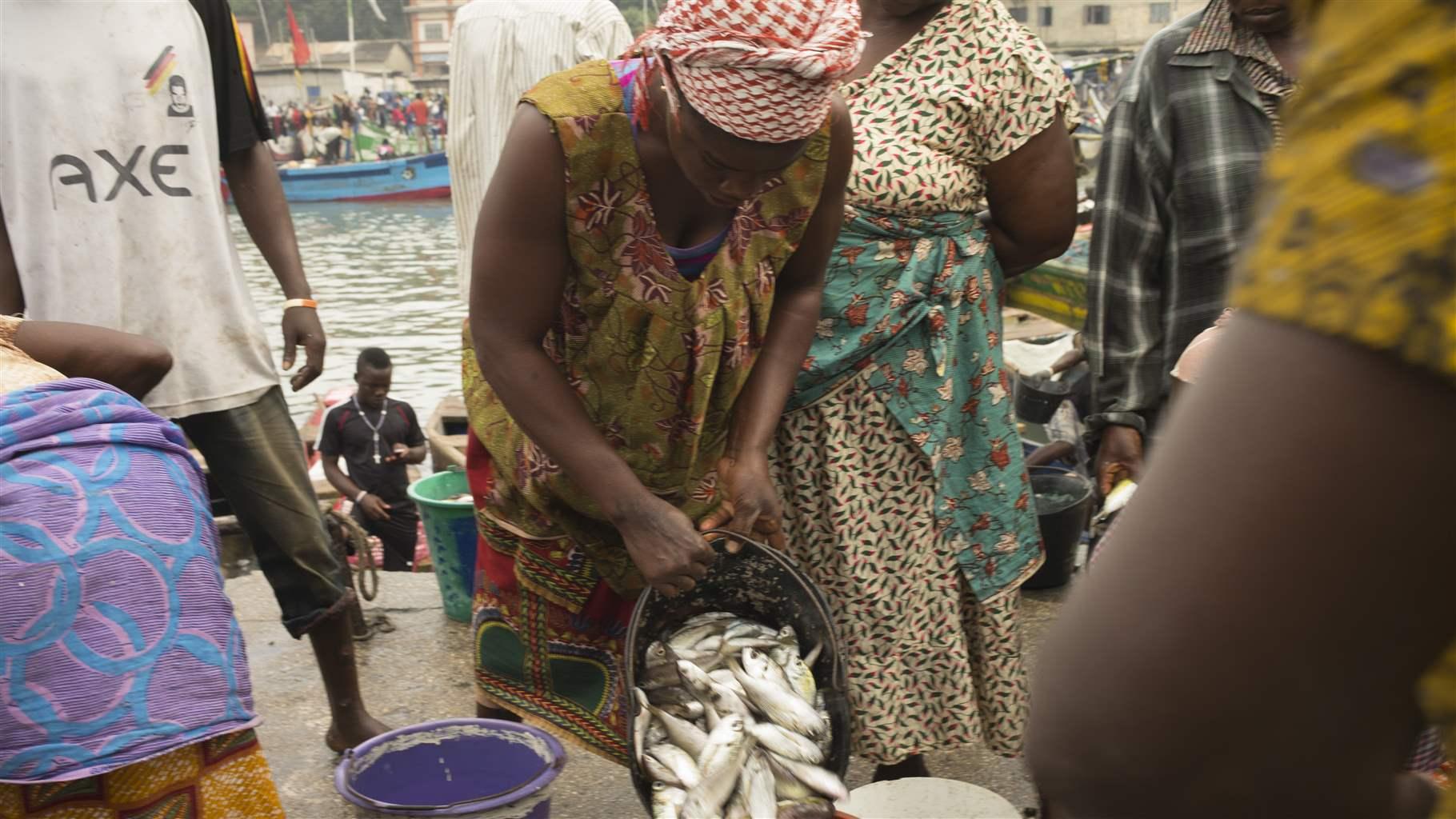Governments Should Act to End Harmful Fishing Subsidies
Stopping some payments would improve ocean health, economies, and food security worldwide

As governments grapple with the impacts of COVID-19 and shape their recovery plans, world leaders have an opportunity to improve their countries’ economies in ways that will protect oceans and the resources they provide—or, as some experts say, “build back blue.” By doing so, governments can create a more resilient future for both people and nature.
Healthy oceans are essential for jobs, economies, and communities that depend on robust fish populations. That’s why countries need to eliminate government-funded subsidies that damage those populations by encouraging overfishing and even abetting illegal fishing. And through negotiations convened at the World Trade Organization, governments from around the world are close to doing just that.
Before the COVID-19 pandemic hit, global leaders were set to reach an agreement at the end of the WTO ministerial conference on June 11—just three days after today’s World Oceans Day—that would have ended harmful fishing subsidies. Although the pandemic postponed those in-person plans, it’s critical that governments maintain the positive momentum they had in the early spring.
To be clear, not all subsidies are bad: Some, for instance, help countries better manage their fisheries or protect areas of the ocean that serve as fish breeding grounds. It’s critical that these subsidies remain in place.
However, governments pay more than $22 billion a year in damaging types of subsidies, known as capacity-enhancing subsidies, to offset costs such as fuel, gear, and vessel construction. By artificially reducing the cost of fishing, they allow primarily large, industrial fishing boats to overexploit fish populations. The influx of money from these subsidies allows fleets to operate at overcapacity, meaning that they can fish longer and farther from the coastline, thus encroaching on the ocean’s finite fish supply. As a result, many coastal communities that rely on seafood to support their livelihoods are affected, with fishers in these areas forced to seek new ways to support their families.
Countries across the globe are struggling with challenges related to overfishing. For example, at least 38% of stocks in the European Union were overfished in 2018, according to a European Commission report. China, Japan, the EU, South Korea, and the United States are the five largest providers of harmful subsidies, giving out $12.7 billion annually—more than half of the capacity-enhancing subsidies distributed to fishers worldwide.
These harmful subsidies are accelerating the decline of already depleted fish populations, which will ultimately lead to lower catches. And this is happening at a time when governments should be setting policy that helps fisheries bounce back, which in turn would benefit coastal communities, local and national economies, and marine ecosystems.
To correct course, WTO members should seize the opportunity to reset humans’ relationship with the ocean in a way that benefits both people and nature—rather than funneling public money toward activities that deplete the ocean’s resources.
There is widespread consensus that ending capacity-enhancing subsidies is the right thing to do. When the 193 United Nations member countries developed the sustainable development goals in 2015, their leaders promised to eliminate harmful subsidies. These governments have civil society support, too—147 nonprofit organizations from around the world have signed on to a policy statement calling on leaders to reach an agreement to eliminate these subsidies.
As the only international organization setting rules of global trade among nations, the WTO is uniquely positioned to craft an ambitious—and binding—agreement to end harmful fishing subsidies. Although the coronavirus pandemic has temporarily made it more logistically difficult for members to continue negotiations, it’s also made it more important than ever to help ensure that the ocean can continue to support communities and economies for the long term, even when unexpected hardships arise.
The health of communities and the environment are inextricably linked: A barren ocean will feed no one. As WTO members move toward reopening economic activity, their leaders should seize opportunities to fix what isn’t working. Ending harmful fisheries subsidies is one way that countries can do just that.
Isabel Jarrett manages The Pew Charitable Trusts’ work to reduce harmful fisheries subsidies.












